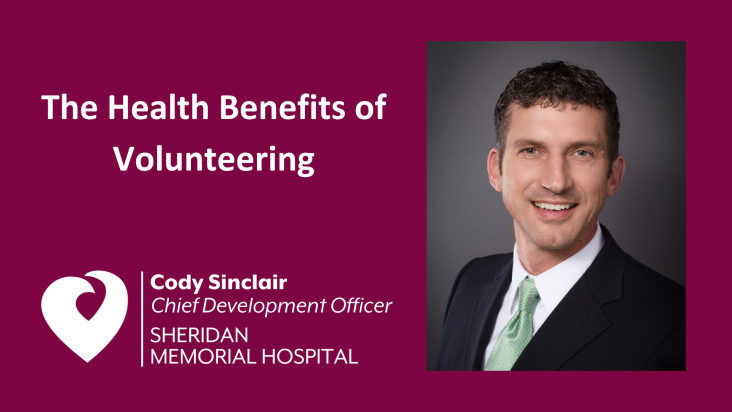At Sheridan Memorial Hospital volunteers are an integral part of our daily routine. During National Volunteer Week in April, we were pleased to honor the over 100 hardworking individuals who give us their time and talents every day. During these extraordinary times, we have asked most of our “regular” volunteers to stay safe at home. We thank them for their service and we miss their smiling faces. We can’t wait for them to come back to us.
Right now we have a call out for a different kind of volunteer — health care professionals who can help us care for patients in anticipation of a surge in hospitalized patients due to COVID-19.
Regardless of the kind of volunteer, we truly appreciate their commitment of personal time and energy to make a difference in the lives of others. Many people volunteer with the intention to help those in need, most times not thinking about what’s in it for them. But there are health benefits associated with volunteering that are good for the mind and body. The Mayo Clinic and Franciscan Health System suggest that volunteering offers many health benefits from lowering stress to boosting self-confidence.
Reduce stress, anger, anxiety
Volunteering may enhance a person’s social networks to lower stress and reduce the risk of disease. It can create a sense of meaning and appreciation, which can have a stress-reducing effect. The social contact aspect of helping and working with others can have an effect on a person’s overall psychological well-being. Nothing relieves stress better than a meaningful connection to another person.
Decrease risk of depression
Volunteering leads to lower rates of depression because people are in regular contact with others. Volunteering increases social interaction and helps build a support system based on common interests — both of which have been shown to decrease depression.
Stay mentally, physically active
Volunteer activities help people stay physically and mentally active — getting people moving and thinking at the same time. Older volunteers tend to walk more, find it easier to cope with everyday tasks and stressors, are less likely to develop high blood pressure, and have better-thinking skills. Volunteering can also lessen symptoms of chronic pain and reduce the risk of heart disease.
Increase happiness
Volunteering gives a sense of purpose. Researchers have measured hormones and brain activity of volunteers and discovered that being helpful to others delivers pleasure. Human beings are hard-wired to give to others. The more we give, the happier we feel. The more meaning people feel in their lives, the more likely they are to stay healthy.
Make new friends
Volunteering helps people meet others and develop new relationships. One of the best ways to make new friends and strengthen existing relationships is to participate in a shared activity. Volunteering is a great way to meet new people with common interests as well as expand a person’s network.
We are so thankful to our incredible volunteers and to our amazing community for the outpouring of support we have received.
Cody Sinclair is the Chief Development Officer at Sheridan Memorial Hospital.

